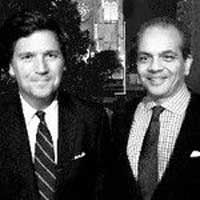 There are times when even world powers need to step back from long held policies that have been the hallmark of what they consider to be protecting their interests.
There are times when even world powers need to step back from long held policies that have been the hallmark of what they consider to be protecting their interests.
Countries do this, not because of cowardice or to save money allocations, but for very pragmatic reasons: to prevent wide-spread conflagrations that may endanger, not only them, but many other countries and people.
Such may very well be the issue at hand for the US vis-à-vis its Mid-East policy. While Israel has been a long-standing ally for many years—and it has been American policy to fund and support it—it is now involved in a conflict that that has seen thousands killed, including now US service people.
The US has military personnel stationed all through the region, including in places that are vulnerable to attack. The question that must be asked is, why? What is the purpose of US soldiers, sailors and airmen being in harm’s way in a volatile area of the world?
The quick answer may be: “To protect our interests?” Which, of course, begs the question: “What interests?”
The recent attacks on shipping in the Red Sea might be a good example; shipping lanes need to stay open for the good of all countries whose logistics rely on open and danger-free waterways.
But why are ships being attacked, and, further, why are our personnel being attacked? The reason is it all relates back to policies—policies that may or may not be helpful to preserving what the US sees as its interests.
Indeed, there are terrorist groups operating with impunity in the surrounding area. US policy has always had the notion that we “must be over there, so that the terrorists don’t come over here!” But the jury is out when contemplating if such a theory is accurate.
Certainly, the US has been engaging in “forever wars” that at times flame up and then then slowly cool down, only to flame up again in the future. Are these wars necessary? Have they truly protected US lives and interests?
A contrary argument can be made that not only have they not preserved US lives, but have, in fact, put the US and its people in greater danger.
Israel has been on the receiving end of much US largesse. The idea is that they are the “only democracy in the region.” Thus, the US presence in the region is to preserve its ally and to see, via money and logistics that it is protected. Fair enough.
The events of October 7th made it necessary for Israel to respond. What country would not respond to the murder of over one thousand of its people?
But that is not the issue here.
The issue is why US personnel were in a location where they could easily be targeted, and more importantly, should they really be there to begin with? And this is just one example of a US presence that must be questioned. US military personnel and equipment are stationed in Kuwait, Saudi Arabia, UAE, Syria and Iraq.
The big question: Why?
The question cannot be reduced to oil; the US, if it really wanted to do the drilling, has enough oil for the next hundred years or more. It cannot be simply diplomatic; you do not send your military to hang out in a foreign country in order to communicate your country’s policies.
What about Iran? Someone has to keep them in check, right?
Yes, one would suppose. Yet, US military power can be projected anywhere in the world within a matter of minutes. To have boots on the ground in a region where they are sitting ducks, is quite another matter. As far as Israel is concerned, it is quite capable of defending itself from any Iranian threat, despite Iran’s bluster.
The US needs to readjust its thinking when it comes to handling Mid-East policy. It is not a matter of looking good to the world at large, but rather doing good to its people, especially those who put their life on the line each day to protect it.
What’s more, the US policy of keeping personnel in Mid-East countries also endangers allies. The presence of the US military is tantalizing to the enemies of our allies. Killing American soldiers is considered a crowning achievement, and we must not give them an easy opportunity.
It would not be radical to suggest that the US pull its troops out of the region. The Pentagon has the ability to observe what is going on there with its rather advanced technology. It does not need troops to carry out this type of operation.
There is the canard that if the US does not have personnel on the ground in Middle Eastern countries, that it is somehow retreating into the dark cave of isolationism. Nothing could be farther from the truth—it would not be retreating, but rather taking a military that is stretched thin and putting it someplace where it can be better used and better protected.
It has been said that discretion is the better part of valor. When it comes to the present US policy in the Mid-East, this is especially true.
----------------------------------
Joseph M Bianchi is an independent journalist based in Greenville, SC. His work has appeared in national and international publications.


















